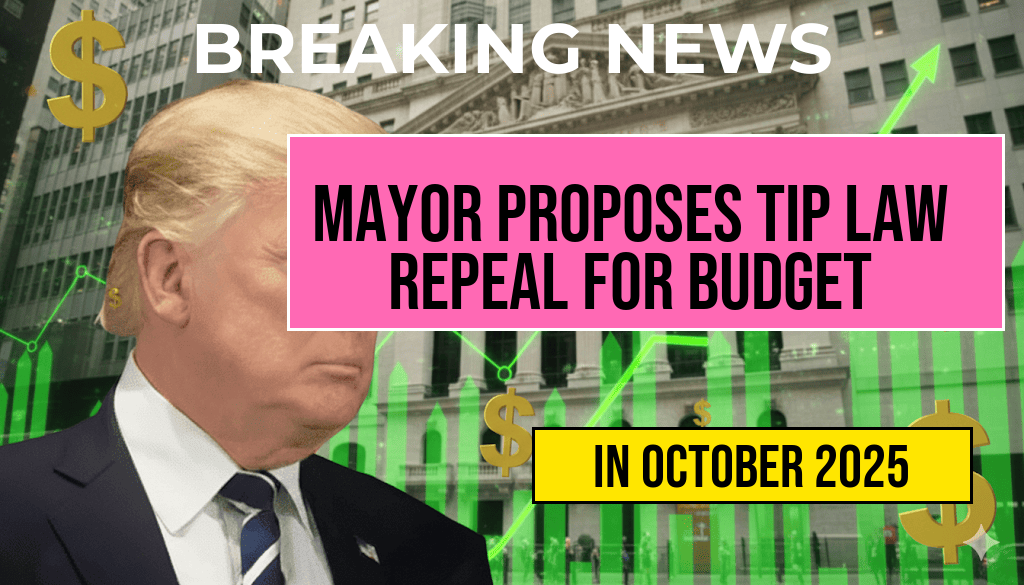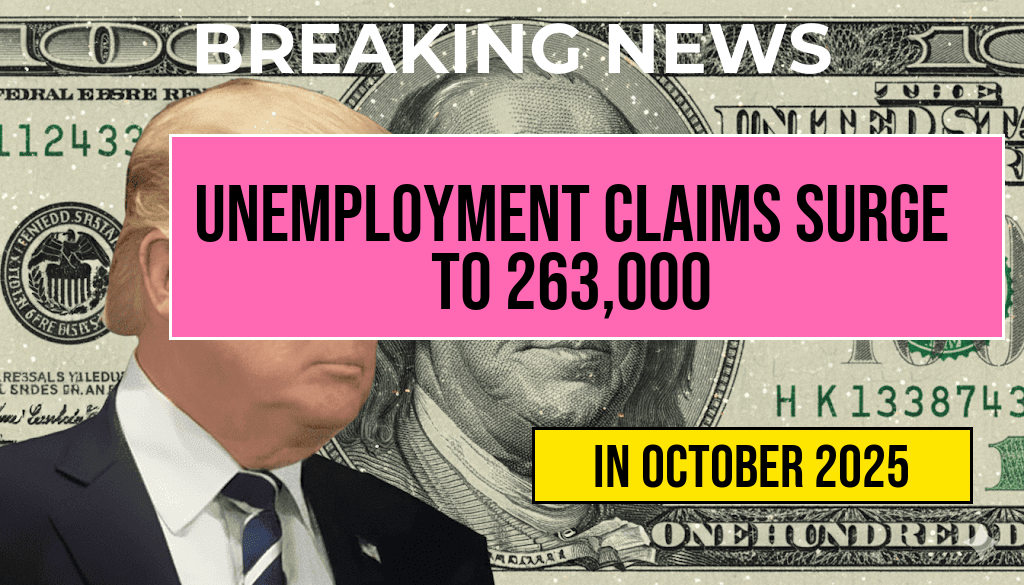The city of Springfield is facing a staggering $1 billion budget shortfall, prompting Mayor John Smith to propose a controversial repeal of the local tip law. This legislation, initially enacted to enhance the earnings of service industry workers, mandates that restaurants and other establishments pay their employees a minimum wage that includes tips. The Mayor argues that repealing this law could help bridge the financial gap that has left the city scrambling for solutions. The proposed change has sparked a heated debate among residents, business owners, and workers, each of whom has a vested interest in the outcome.
Background of the Tip Law
Springfield’s tip law was designed to ensure that workers in the hospitality sector receive a fair wage, reflecting the often volatile nature of tips. Under this law, restaurant owners could pay their employees a lower base wage, provided that the combined income from tips and wages met the city’s minimum wage standard.
The Budget Crisis
Springfield’s financial woes are not new. Over the past few years, the city has grappled with declining revenue from various sources, including sales tax and property tax. The pandemic exacerbated these issues, leading to a significant drop in business for local restaurants and entertainment venues. In response, the city has implemented austerity measures, but officials now say that more drastic action is necessary.
Mayor’s Proposal
In a statement delivered during a recent city council meeting, Mayor Smith outlined his rationale for the repeal. “We are at a critical juncture,” he said. “Repealing the tip law will allow us to redirect funds to essential services like public safety and education, which have suffered due to our financial constraints.” Smith emphasized that the move is not an attack on workers but rather a necessary step to ensure the city’s survival.
Reactions from Stakeholders
- Restaurant Owners: Many local business owners support the Mayor’s proposal, arguing that the current tip law places undue burdens on their operations. “It’s hard to survive when we have to cover wages that are often not sustainable in this economy,” said Jane Doe, owner of a popular downtown eatery.
- Workers: Conversely, workers in the hospitality sector have voiced strong opposition. “This repeal would directly affect my livelihood,” said Mark Johnson, a server at a local diner. “Tips are a significant part of our income, and without them, we’ll struggle to make ends meet.”
- Advocacy Groups: Local advocacy organizations are mobilizing to fight the repeal. Groups such as the Springfield Workers’ Alliance are planning rallies and campaigns to educate the public about the potential impacts of the repeal.
Potential Impact on Workers and Businesses
The proposed repeal could have far-reaching implications for both employees and employers. For workers, the abolition of the tip law could lead to a significant reduction in overall earnings, especially in a city where many rely on tips to supplement their income. On the other hand, businesses may see short-term relief from payroll burdens, allowing them to allocate resources toward other operational needs.
Economic Analysis
| Sector | Current Average Income (with tips) | Projected Average Income (without tips) | Impact |
|---|---|---|---|
| Servers | $30,000 | $22,000 | Loss of $8,000 annually |
| Bartenders | $35,000 | $25,000 | Loss of $10,000 annually |
| Restaurant Owners | $150,000 | $160,000 | Gain of $10,000 annually |
Next Steps for the City Council
The city council is expected to hold a series of public hearings to gather input from citizens before making any decisions. Mayor Smith has indicated that he hopes to have a vote on the repeal within the next two months. Community members are encouraged to attend these hearings and voice their opinions on the proposed legislation.
Conclusion
The tension surrounding the proposed repeal of the tip law in Springfield highlights the complex interplay between labor rights and economic necessity. As the city grapples with its budget crisis, the outcomes of these discussions will undoubtedly shape the future of the local economy and the livelihoods of its workers.
For further reading on similar legislative changes and their impact on the workforce, visit Wikipedia or explore insights from Forbes.
Frequently Asked Questions
What is the proposed change to the tip law?
The mayor has proposed a repeal of the existing tip law as part of efforts to address a significant $1 billion budget shortfall.
Why is the city facing a $1 billion budget shortfall?
The budget shortfall is attributed to various factors including decreased revenues from taxes and increased expenditures due to economic conditions and public service demands.
How will repealing the tip law affect workers?
Repealing the tip law may lead to changes in how workers in the service industry are compensated, potentially impacting their overall earnings and job satisfaction.
What are the arguments for and against repealing the law?
Proponents argue that repealing the law could help alleviate the budget shortfall, while opponents express concern over workers’ rights and fair compensation in the service sector.
When is the proposal expected to be voted on?
The proposal is scheduled for discussion in the upcoming city council meeting, but the exact date for a vote has not yet been confirmed.











